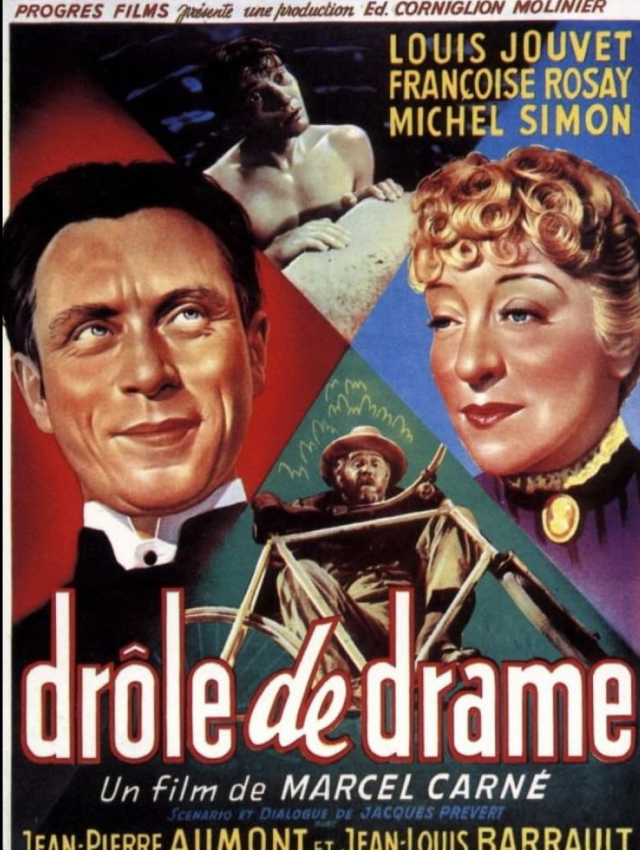‘Drôle de drame‘ (1937 – alternative title ‘Bizarre, Bizarre‘), the second film by French director Marcel Carné, has over time acquired the status of a cult film. Criticized and ignored upon its premiere in the tense years before World War II, it was re-released after the war and enjoyed great success. Since then, every opportunity to re-watch it produces new praise and discoveries of new virtues. Was this film released too early? ‘Drôle de drame‘ uses the French theatrical vaudeville style to create a savory critique of British morals and social tics and combines a parody of detective films with moments of surrealism. Perhaps the fact that Marcel Carné had released ‘Les enfants du paradis’ and ‘Le quai des brumes’ in the meantime led the audiences to re-evaluate this earlier movie in his career? Whatever the explanation, ‘Drôle de drame‘, seen 87 years after its filming and first release, provides an opportunity to meet some names that are now legendary, but also a fresh and enjoyable cinematic experience at many moments.

The film is the adaptation of a novel by the British writer J. Storer Clouston, the adaptation being signed by Carné and the eminent poet Jacques Prévert, screenwriter or co-screenwriter of numerous famous French films. The story takes place in London, but it is more of a French version of London, or rather as it would have been represented on a French comedy stage in the first half of the 20th century. We are dealing with serial murders and not very competent detectives from Scotland Yard who solve cases in their sleep, with a Puritan minister and a mysterious crime novelist, with enigmatic disappearances and double identities, with journalists thirsty for sensational news and a milkman in love. The most improbable events follow each other at a rapid pace. Police intrigue and theatrical vaudeville meet in an original mix.
The cast is stellar. Michel Simon appears in a double role alongside Louis Jouvet. The two actors, who were among the superstars of interwar French cinema, did not really get on with each other, but perhaps it was the tension between them that contributed to the quality of some scenes that have become anthological. We can also watch Jean-Louis Barrault, who would become one of the great actors and directors of the French theatre and who was then only 27 years old and dedicated most of his artistic efforts to film, with 5 films in his filmography in each of the years 1936, 1937, 1938. Here he has a secondary, but important and not at all simple, role – a serial killer who also falls in love. Every scene in which he appears is a delight. Satirical arrows at British morals and social formalisms abound. ‘Drôle de drame‘ was and is superb comic entertainment.
